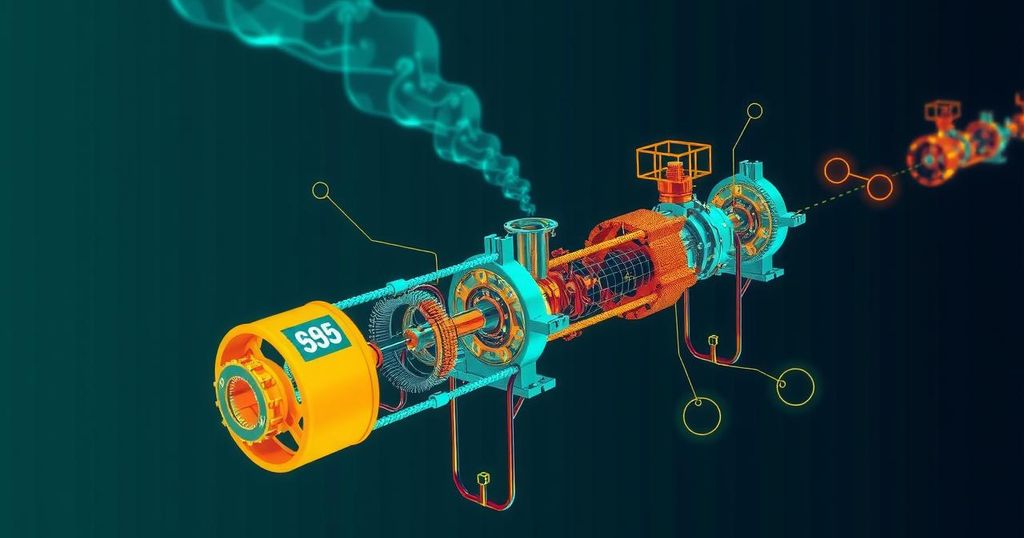Technological Advances Key to Mitigating Methane Emissions Despite Ongoing Challenges

Recent methane leaks from Algeria highlight the pivotal role of the International Methane Emissions Observatory (IMEO), showcasing the effectiveness of advanced monitoring technology while emphasizing the need for greater global action to reduce greenhouse gas emissions. Despite the establishment of initiatives like the Global Methane Pledge at COP29, significant gaps in implementation remain, requiring immediate and actionable commitments from countries worldwide.
A recent analysis revealed significant methane emissions from the Hassi Messaoud oil field in Algeria, tracing back to observations made by a computer-driven system in Paris. The International Methane Emissions Observatory (IMEO), managed by the United Nations Environment Programme (UNEP), alerted regulatory bodies, leading to the prompt cessation of leaks. This event underscores the potential for technological advancements to mitigate methane emissions, yet experts insist that more extensive actions are essential globally to address the increasing releases of this potent greenhouse gas, responsible for a substantial proportion of global warming. Currently, atmospheric methane levels are approximately 2.5 times higher than pre-industrial figures, with emissions continuing an upward trend. The ongoing UN Climate Change Conference (COP29) has placed a heightened focus on reducing methane contributions across various sectors. Notably, host nation Azerbaijan seeks to target emissions related to waste and food systems, which account for a notable percentage of overall methane emissions, while others aim to streamline reductions in the energy sector, which presents the most promising opportunities for immediate and cost-effective cuts. The IMEO is at the forefront of collecting methane data through various channels, including governmental reports and scientific studies. A pivotal feature of their operations is the Methane Alert Response System (MARS), which utilizes global satellite technology to detect and report significant methane emissions events. Despite recent technological improvements, a report by UNEP indicates that emissions continue to rise alarmingly, with the oil and gas industry losing billions annually due to methane leaks that could largely be mitigated without incurring additional costs. Experts attribute the slow progress in reducing methane emissions to factors such as lack of awareness regarding the scale of the issue and the economic benefits of addressing methane leaks, prompting some governments to introduce measures such as methane fees. For instance, Nigeria’s recent implementation of such a fee has garnered positive recognition. Furthermore, the European Union’s proposed methane border adjustment reflects ongoing efforts to regulate imported oil and gas based on their methane emissions. Despite the advancements in monitoring technology and the establishment of initiatives like the Global Methane Pledge—aiming for a 30 percent reduction from 2020 levels by 2030—substantial and measurable progress remains elusive. While 156 countries have endorsed the pledge, less than one-third have shared their specific strategies for emissions reductions, revealing the necessity for more tangible actions. Overall, while ambition is crucial, individuals and nations must escalate their commitments into actionable plans to truly combat methane emissions and their detrimental environmental impacts.
The topic of methane emissions has garnered significant attention in the context of climate change due to their substantial contribution to global warming – accounting for approximately 30 percent of warming effects. The International Methane Emissions Observatory (IMEO), established and led by the United Nations Environment Programme (UNEP), plays a critical role in monitoring and addressing these emissions through data collection and reporting. The Methane Alert Response System (MARS) is a key technological advancement that provides real-time alerts regarding large emissions. Despite these developments, the challenge remains that global methane emissions continue to rise, emphasizing the urgency for effective action at all levels to mitigate their environmental impact.
In conclusion, while technology such as satellite monitoring and the initiatives by IMEO demonstrate promising pathways to identify and reduce methane emissions effectively, the need for concrete and immediate actions from all sectors is paramount. Countries must advance from merely promising reductions to implementing specific and measurable strategies in order to curtail methane releases effectively. This collective action is critical not only for meeting global climate targets but also for enhancing environmental accountability and sustainability.
Original Source: www.unep.org






